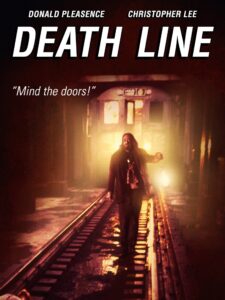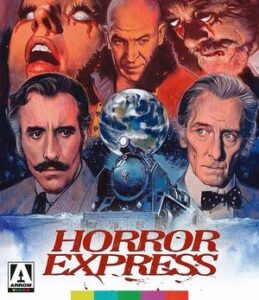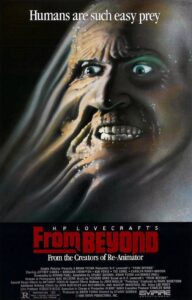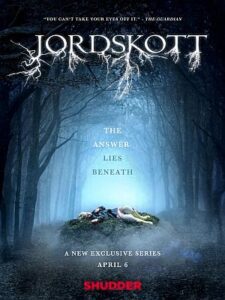With a cast as inauthentic as the movie’s painted prop gold bars Blood Vessel disappoints.
Hailing from the land down under, Blood Vessel is the story a small group that has survived the sinking of their ship during WWII and find themselves aboard a German warship, whose crew has met mysterious and gruesome deaths. An intriguing premise the film fails almost straight 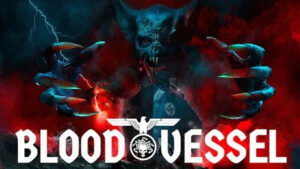 out of the gate. The survivors are a collection of cliched and cardboard caricatures instead of living breathing characters. At no point throughout the films 97-minute runtime does a single character present any sort of inner life, growth, or surprising turn. They are all exactly who they appeared to be when we met them floating in raft in the cold frigid waters of the North Atlantic, presumably in the winter of ’44-’45.
out of the gate. The survivors are a collection of cliched and cardboard caricatures instead of living breathing characters. At no point throughout the films 97-minute runtime does a single character present any sort of inner life, growth, or surprising turn. They are all exactly who they appeared to be when we met them floating in raft in the cold frigid waters of the North Atlantic, presumably in the winter of ’44-’45.
The lack of care or attention to detail in this film might be best typified by the scene where the greedy, brassy, and loud-mouthed character from New York discovers a cache of gold bars presumable looted by the NAZIs from their Romanian allies. Examining the gold, he lifts the bars easily even turning in the light while grasping it with just two fingers.
Had the characters been fleshed out and developed that film’s slow pace and attempts at building tension during the first half of its runtime may have worked. A derelict and deserted ship, particularly an enemy one, would make for a rich and atmospheric setting to explore characters and conflict but if you populate it with tired cliches then the lack of action becomes a drag and not a slow burn.
While watching Blood Vessel it was impossible not to think of similarly themed and flawed films such as 1980’s Death Ship. It isn’t until the third act that the monstrous cause for the carnage that befell the crew is revealed and released forcing the characters into a desperate fight for survival, but by this time it had become impossible to have any emotional stake in their escape or victory and the enjoyment comes from predicting which horror film tropes will rule the script and its ending.
I can’t but also feel that the cinematography also fails the film. While the sequences are well shot and atmospherically lit, there is something in the crispness of the images that works against the story’s period setting.
While some may enjoy the basic monster fight nature of the film, particularly its final act and resolution, I cannot recommend Blood Vessel as a movie worth your time.
Blood Vessel is currently streaming exclusively on Shudder.

